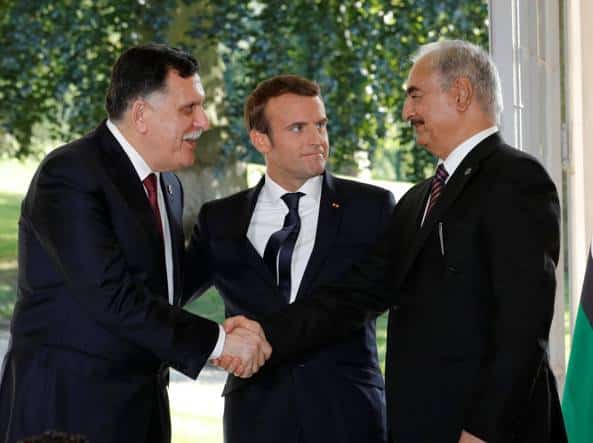On Wednesday a former distinguished US State Department official who has now switched jobs to work for the UN, Jeffery Feltman, as Under-Secretary-General for Political Affairs, arrived in Tripoli. His visit came as the UN’s efforts to implement the Libyan Political Agreement (LPA) continue to face political deadlock with justifiable fears from the UN that their efforts look lightly to fall apart.
Given the decades Feltman spent as part of the US State Department, he will no doubt be perceived by the Libyans to be speaking for America as well as the UN.
It first must be said that Libya is a prime example of the failure of US and Western interventionist foreign policy. The US, EU, and UN would be doing everyone a favor if it kept its noses out of Libyan business.
The French Foreign Minister, Jean-Yves Le Drian, visited Libya just before Christmas in a continuing but futile attempt to impose a forced marriage between UN selected and backed Fayez Serraj and the head of the Libyan National Army (LNA), Field Marshall Khalifa Haftar. It has been an absolute impossibility thus far.
The current situation in Libya shows that the Libyan Political Agreement (LPA) processes that the UN, fronted most recently by France, tried to implement since its signing two years ago cannot be accepted. Now here comes Feltman to repeat Le Drians pitch!
The fact is the LNA and Haftar control almost all the oil in Libya and the majority of the country’s territory. Whereas Serraj is unable to move beyond the small naval base situated by the sea in Tripoli, heavily protected by paid militias.
Following Le Drian’s meeting in Tripoli with Serraj just before Christmas, Le Drian flew to Benghazi for a meeting with Haftar.
Le Drian, the UN, or Western powers still fail to understand that the LPA is rejected by all including the Libyan people. The east Libyans still believe international support is given to the Muslim Brotherhood Party and its members, something Haftar vehemently opposes and always will.
To be even clearer: Haftar announced in late December that the Libyan Political Agreement (LPA) “expired” two years after the Libyan political parties signed it. “As of Dec. 17, 2017, the so-called political agreement expired. Therefore, all bodies resulting from this agreement automatically lost their legitimacy, which is questioned since day one,” Haftar stated this in a televised speech to the Nation.
Why the UN persists with this fantasy of the LPA is beyond logic.
Haftar has positioned himself as the best man for the job, the one to bring stability to Libya with support of Libyans rather than foreigners. However he has drawn some support from Russia, which was requested on January 6th by the speaker of the Tobruk-based parliament to help with mediation. “We see that Russia’s role assists in the reconciliation between the Libyans,” Aguila Saleh Issa said.
The key, unresolved issue remains who can secure Libya internally and stop millions of migrants, mostly economic ones, from over-running Europe. Is it to be Haftar or the UN selected Serraj?



